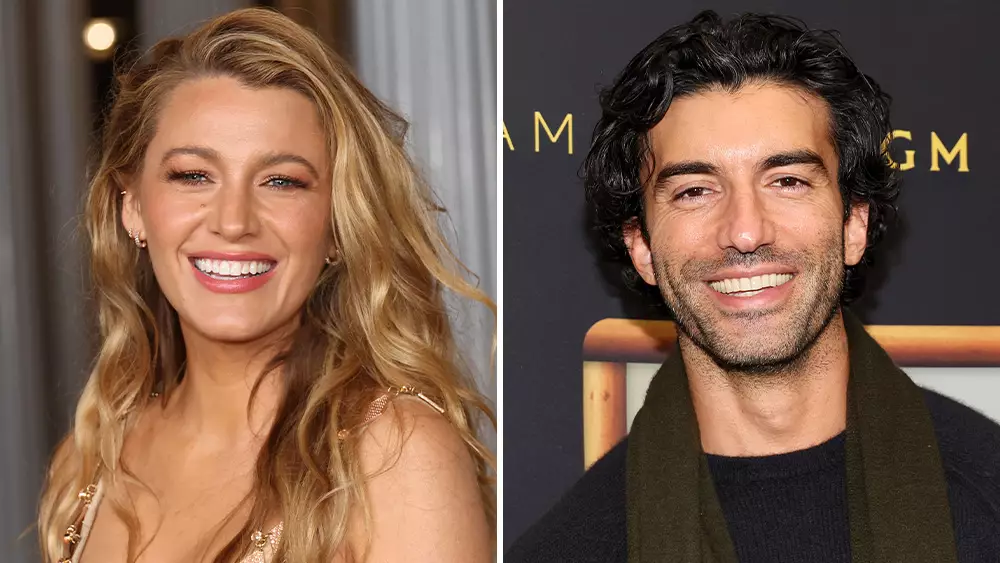The glitz and glamour of Hollywood often mask the tumultuous undercurrents that can lie beneath the surface. Recently, Blake Lively’s legal confrontation with her co-star and director Justin Baldoni has drawn back the curtain on issues of harassment and retaliation in the film industry. The case has sparked discussions on not only individual conduct within the industry but also the broader implications for workplace security in creative environments.
On December 20, 2023, Blake Lively filed a complaint with California’s Civil Rights Department, alleging sexual harassment and retaliation during the filming of “It Ends With Us.” Eleven days later, this complaint morphed into a federal lawsuit filed in New York. Lively’s case outlines a range of accusations centering around a calculated retaliation scheme orchestrated by Baldoni and his associates. This 13-claim legal document argues that the seemingly innocuous actions of the Wayfarer Studios team were far from benign; rather, they constituted an unlawful attempt to intimidate Lively and stifle her voice regarding workplace misconduct.
According to the lawsuit, the retaliation tactics employed were not only common violations of legal statutes but also breaches of contractual agreements made during the production. The dramatic element of Lively, a high-profile and talented actress, being purportedly targeted in such a manner, reflects a disturbing dynamic within the film industry—a culture where individuals are allegedly prevented from speaking out against toxic environments.
In an intriguing twist, Baldoni, who has publicly claimed innocence, filed a $250 million libel lawsuit against the New York Times in response to an article that reportedly shed light on the darker sides of the filming process. His legal team asserts that they were unfairly portrayed, claiming that the article cherry-picked and misrepresented communications to paint a negative picture of his professional conduct.
While Baldoni’s public relations team has downplayed accusations of a smear campaign against Lively, recent comments from one of the team members, who later deleted a post, suggest a more complicated narrative. The insinuation that they perceived Lively as a continued source of workplace conflict raises questions about how deep-rooted problems might manifest into retaliatory tactics.
Throughout this turmoil, Lively has been portrayed as someone who sought to protect the integrity of her workplace rather than instigate conflict. Her attorneys have argued that she consistently voiced concerns about creating a safe and respectful environment during filming. This portrayal of Lively as a proactive agent for change stands in stark contrast to the claims made by Baldoni and his allies. Such a dichotomy paints a critical picture of the complexities and challenges that women often face in predominantly male environments like the film industry.
Lively’s legal team emphasizes her commitment to advocating for a respectful workplace—an aspiration that ultimately put her at odds with those who benefitted from maintaining the status quo. The contradiction between her intentions and the resulting fallout underscores the risks involved in bringing such issues to light. By stepping forward, Lively placed herself in a precarious position, thereby highlighting a systemic issue of intimidation that often silences women in similar industries.
Lively’s lawsuit arrives amid a series of tumultuous legal battles in Hollywood, reminiscent of the post-#MeToo era where many individuals began to expose abuses of power. The growing visibility of these legal confrontations emphasizes an industry still grappling with its culture, and could signal a shift aimed at enforcing accountability.
As more individuals feel empowered to share their experiences of misconduct, the implications are far-reaching; they might usher in reforms for greater protections against harassment and retaliation. It remains to be seen how this specific case will unfold and what reparations may arise for Lively and other affected parties. However, it is clear that the case epitomizes a larger narrative that could shape the future of Hollywood.
Lively’s legal battle against Justin Baldoni and Wayfarer Studios is not simply a personal vendetta—it represents an ongoing struggle for respect and safety within Hollywood’s labyrinthine corridors. As the story unfolds, it challenges the industry to reevaluate its practices, confront its past, and possibly reshape the landscape for future generations of creators.

